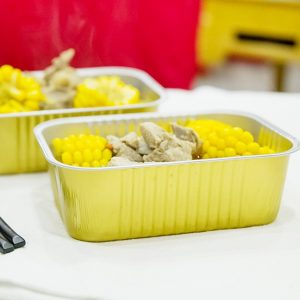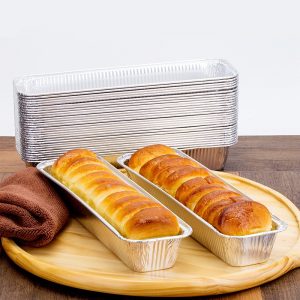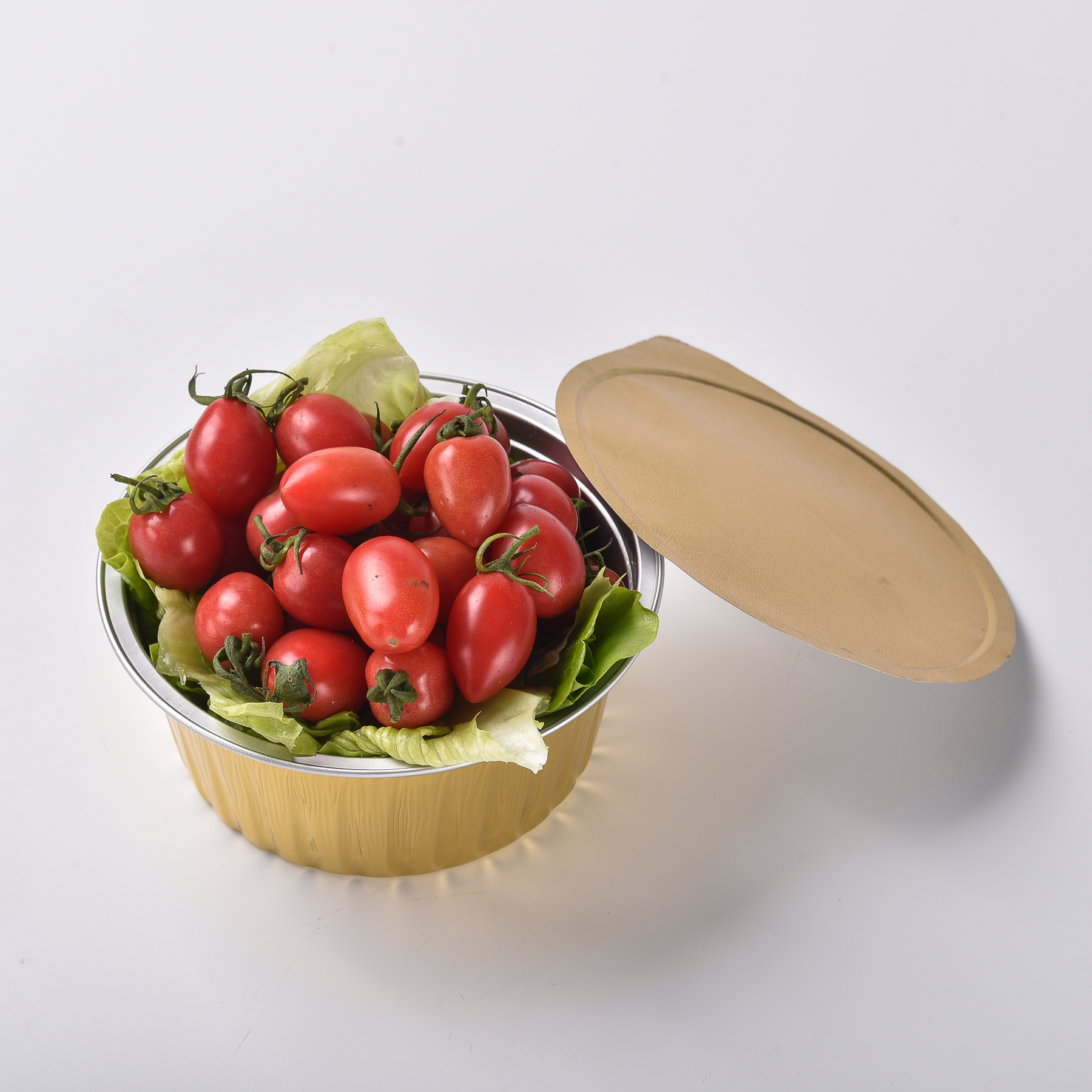1. Selecting the Right Aluminium Material 📦
The process begins with sourcing high-quality aluminium, often in the form of food-grade sheets or rolls. Manufacturers choose specific alloys based on the container’s intended use—whether for food, pharmaceuticals, or industrial packaging—to ensure the right balance of strength, weight, and safety.
2. Cutting and Blanking the Aluminium Sheets ✂️
Large aluminium sheets are cut into smaller, precise blanks according to container size specifications. Advanced cutting machines maintain accuracy and reduce waste, ensuring each blank is ready for forming without material defects.
3. Forming and Shaping the Containers 🔧
The blanks are placed into high-tonnage presses or stamping machines that shape them into trays, pans, or other container designs. This stage determines the final form, depth, and edge structure. For custom aluminium containers, tooling can be modified to produce unique shapes and branding features.
4. Trimming and Edge Finishing 🪛
After shaping, excess material is trimmed, and edges are smoothed to ensure safety during handling. Some manufacturers also add rolled edges for extra strength and consumer safety, especially for containers intended for retail use.
5. Surface Treatment and Branding 🎨
Depending on the order, containers may receive additional treatments such as anodizing for corrosion resistance or direct printing for branding. Techniques like embossing, digital printing, or foil stamping help integrate brand identity into the packaging design.
6. Quality Inspection and Packaging 📦
Every batch undergoes strict quality control, checking for dimensions, strength, and appearance. Approved containers are then stacked, wrapped, and packaged for shipment, ensuring they reach suppliers and customers in perfect condition.
From raw material to finished product, each step in manufacturing aluminium containers is carefully managed to ensure consistency, safety, and customizability. Working with an experienced aluminium container manufacturer guarantees high-quality, custom aluminium containers that meet both regulatory standards and market needs.

















